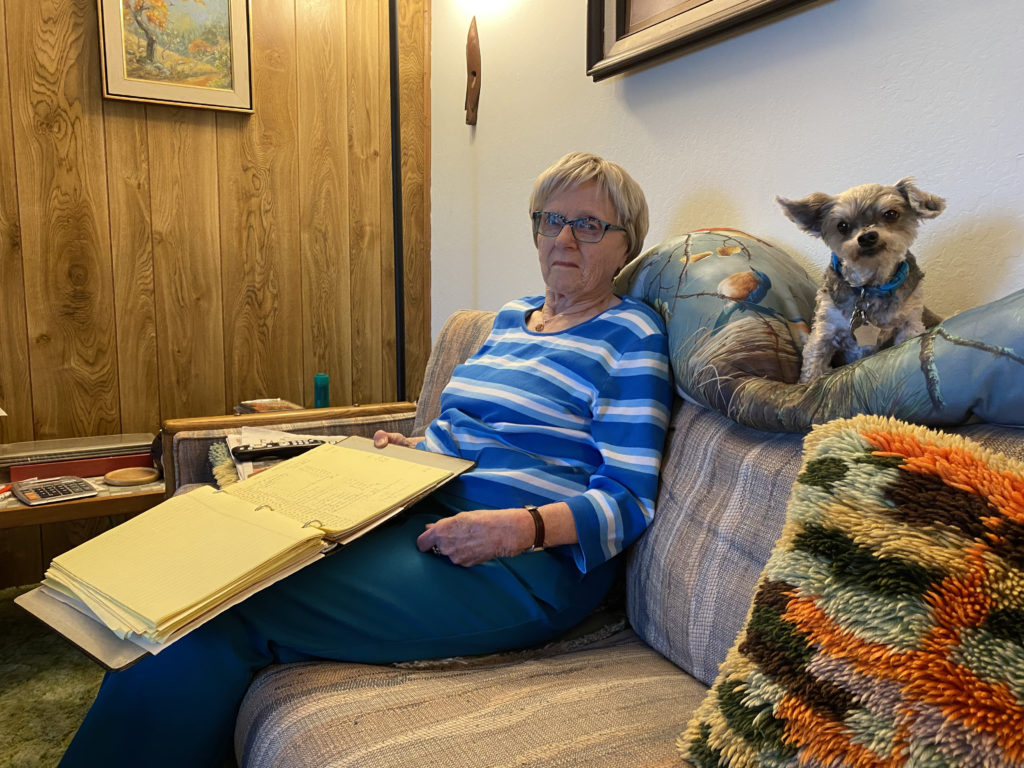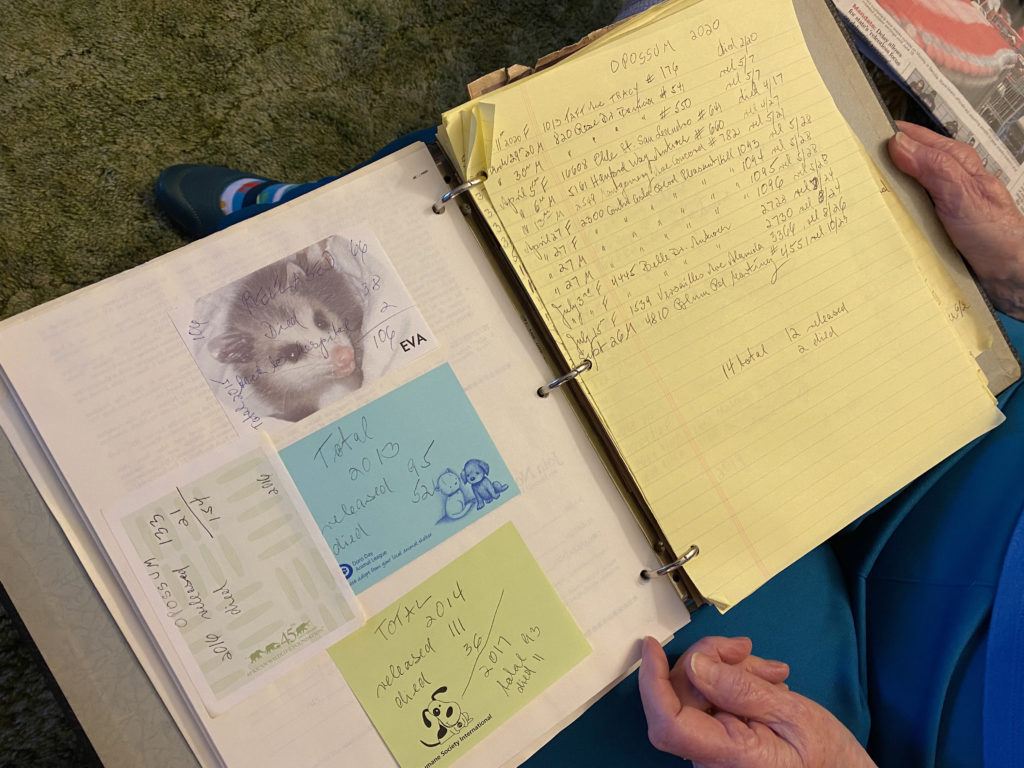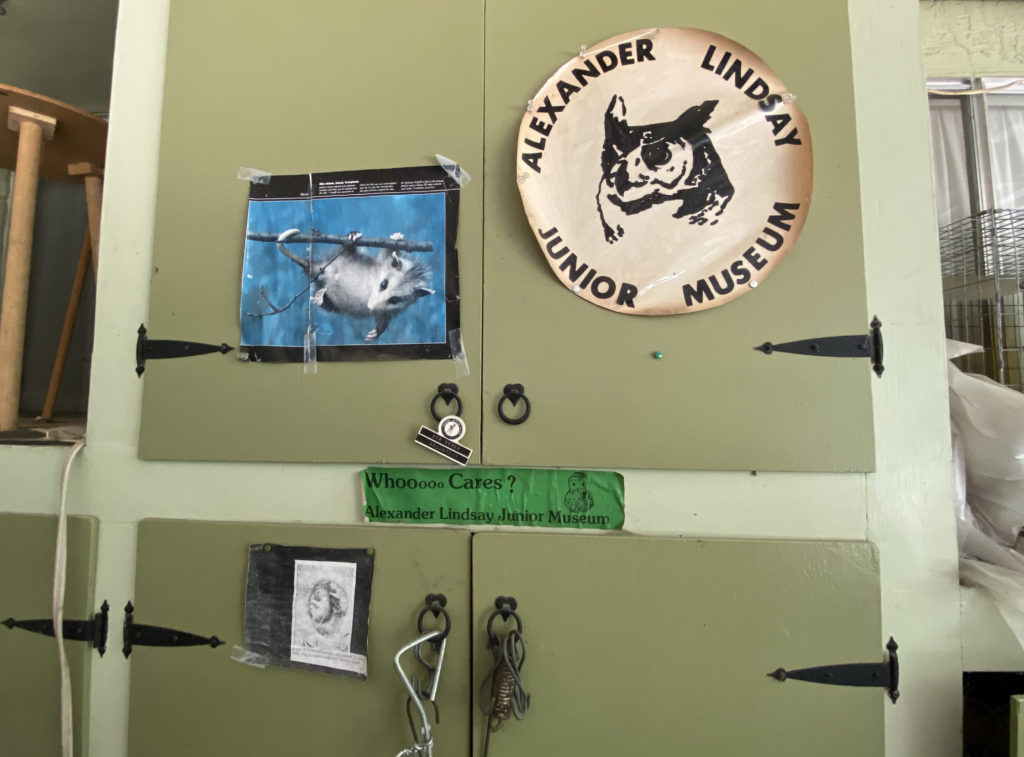
 Lindsay Wildlife Experience volunteer Eva Berek estimates that over a span of 40 years, she has helped thousands of orphaned, sick and injured animals get another chance at life.
Lindsay Wildlife Experience volunteer Eva Berek estimates that over a span of 40 years, she has helped thousands of orphaned, sick and injured animals get another chance at life.
Their details — the animal’s sex, accession number, where they were found, when they were returned to the wild — are meticulously catalogued in a binder she keeps in her Concord home. At 99 years old —she will celebrate her 100th birthday this September — Eva may have retired from her role as a Lindsay home care volunteer, but her passion for wildlife is as strong as ever.
“When I meet somebody new, they say, ‘Do you read a lot? Do you knit?’ No, I don’t,” Eva said recently, while sitting in her living room under the watchful eye of her dog, Tootsie. “I’m into animals and I take care of them when I can.”
For decades, that meant housing and caring for scores of opossums, squirrels and other wildlife brought by caring rescuers to Lindsay’s wildlife rehabilitation hospital. Known as “The Opossum Lady” for her dedication to North America’s only marsupial, Eva nursed orphaned baby opossums, syringe-feeding them until they were big enough to fend for themselves and be returned to the wild. She provided a temporary home to pink, hairless squirrel kits and other babies, including a kestrel and other wildlife during her earlier days at Lindsay. Her years of selfless dedication have garnered media attention, and while she can no longer lift opossums in cages, Eva is on call for emergencies and remains a staunch advocate for wildlife, including her beloved opossums.
 “People say they don’t want raccoons, opossums, or anything in their yard and I discourage that,” she said. “I tell them opossums are great. They eat bugs and they’re just great to have around.”
“People say they don’t want raccoons, opossums, or anything in their yard and I discourage that,” she said. “I tell them opossums are great. They eat bugs and they’re just great to have around.”
A Lindsay volunteer since the early 1980s, Eva’s love for animals began much earlier in life. Born in Germany three years after the end of World War I, she visited the zoo in Berlin as a child but recalls that her encounters with wildlife were minimal. She did have a pet dog, whose photograph she keeps in a spare bedroom. She still becomes emotional as she relates escaping Nazi Germany with her family in the early 1940s and having to put her beloved terrier down. “Nobody wanted to take the dog because it came from a Jewish family,” she said.
After settling in the United States, Eva married Seymour Berek, a fellow animal lover. They had dogs and other pets over the years, and it was Seymour who encouraged her to volunteer at Lindsay. Eva recalled her husband joking that Lindsay’s small staff “threw a net” over her, and she began driving from her then-home in Antioch to volunteer twice a week at the facility in the old pump house.
As a volunteer, Eva helped care for rehabilitated animal ambassadors including a very tame fox and a couple of playful porcupines. Some animals went into care at her home, including a kestrel that she housed for several months. But it wasn’t just the relationships with animals that mattered; Eva made deep connections with fellow volunteers who shared her love for wildlife.
 In 2020, with the COVID-19 pandemic raging, Eva took care of her last official home care patients, nursing 14 opossums on their journey back to the wild. Retiring, she explained, is necessary but she’s philosophical about closing this chapter of her life. “I’m really upset and sad about it, but you know, everything has to have an end,” she said.
In 2020, with the COVID-19 pandemic raging, Eva took care of her last official home care patients, nursing 14 opossums on their journey back to the wild. Retiring, she explained, is necessary but she’s philosophical about closing this chapter of her life. “I’m really upset and sad about it, but you know, everything has to have an end,” she said.
These days, Eva watches the wildlife outside her windows, including the birds that visit her feeders and frolic in her bird baths. Asked about the most rewarding part of volunteering, she doesn’t skip a beat.
“Being able to help animals, to help them live and see them get (returned to the wild). That’s a great feeling…that they’re alive, they’re well,” she said. “It’s wonderful to see them go. They’re free. Freedom! Freedom is a great thing, not just for animals but for people.”